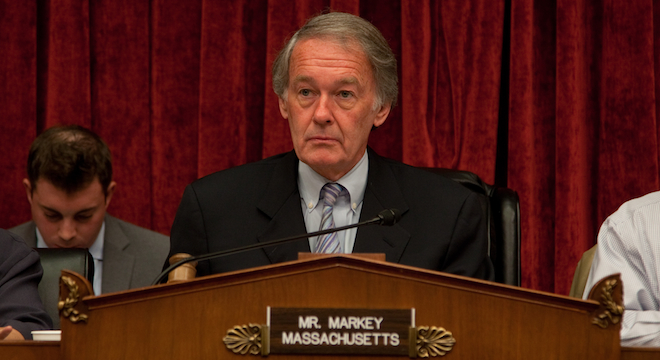Google’s recent announcement that it will consolidate 60 disparate privacy policies for its various products into one meta-privacy policy, allowing the company to combine and mine user information across all of the Google products, hasn’t gone over well with Congress.
On Thursday night, eight members of the U.S. House of Representatives — five Democrats and three Republicans — sent an open letter to Google CEO Larry Page, asking “why Google feels that these changes are necessary, and what steps are being taken to ensure the protection of consumers’ privacy rights”?
The letter asks Google 11-multipart questions about the privacy changes, including the wide-ranging “Please describe all information Google collects from consumers now,” and “who has access to users’ personal information?” and demands answers no later than February 16, 2012.
The letter also quotes from a piece published in The Washington Post Tuesday, authored by Hayley Tsukayama, called “FAQ: Google’s new privacy policy.”
“According to an article in The Washington Post, it became clear that Google, which can already ‘combine the information you submit under your account with information from other Google services or third parties…’ can now share users’ information across more Google products.”
The letter from Congress was signed, in order, by Reps. Cliff Stearns (R-FL), Henry Waxman (D-CA), Joe Barton (R-TX), Ed Markey (D-MA), Marsha Blackburn (R-TN), Dianne DeGette (D-CO), G.K. Butterfield (D-NC) and Jackie Speier (D-CA), all of whom except Speier are on the House Energy and Commerce Committee. Stearns is the Chairman of the subcommittee on oversight and investigations, a fact that he highlighted in the letter.
Google quickly responded with a short blog post by its policy manager Betsy Masiello published late Thursday, entitled “Setting the record straight about our new privacy policy changes.”
In the post, Masiello not-so subtly hits back at both Congress and the Washington Post, writing “others have asked questions, including members of Congress, and that’s understandable too. We look forward to answering those questions, and clearing up some of the misconceptions about our privacy policies that first appeared in the Washington Post.”
As Masiello explains in one of three bullet points: “We’re not collecting more data about you. Our new policy simply makes it clear that we use data to refine and improve your experience on Google — whichever products or services you use. This is something we have already been doing for a long time.”
That response dovetails with what Kashmir Hill at Forbes discovered by looking at Google’s archived privacy policies going back to 2005. As she wrote: “What’s changing is not Google’s privacy policies but its practices. By combining information from across all of its services, Google will be able to better target users with ads, offer more innovative features, and, importantly for Google, better compete with Facebook.”
Google’s post also refers everyone back to Google’s new “one policy” website, which explains the changes in more detail.
Still, the response from Google doesn’t actually address the 11, extremely lengthy, in some cases multi-part questions asked by Congress in the letter sent to Page on Thursday.
Besides that, members of Congress don’t really seem to be in the mood to cooperate with Google, with some of the signatories releasing their own statements condemning the search giant.
As Blackburn put it:
“After all the controversies Google has become entangled, the question people keep asking is – how can we ever begin to trust Google? I’ve always said private industry needs to take the lead in providing consumer choice and transparency before big government rushes in to regulate. But Google’s move to eradicate consumer choice all together across their various platforms raises additional questions about how the company’s monopoly power might hurt competition and how their action might unilaterally and unnecessarily invite even broader government regulations on everyone else.”
Markey released his own statement saying he was concerned that Google’s privacy policy shift could violate the company’s 2011 settlement with the Federal Trade Commission, which had investigated Google over its previous, failed social network Google Buzz.
“I plan to ask the Federal Trade Commission whether Google’s planned changes to its privacy policy violate Google’s recent settlement with the agency,” Markey said.
The new privacy policy changes go into effect March 1, 2012.









